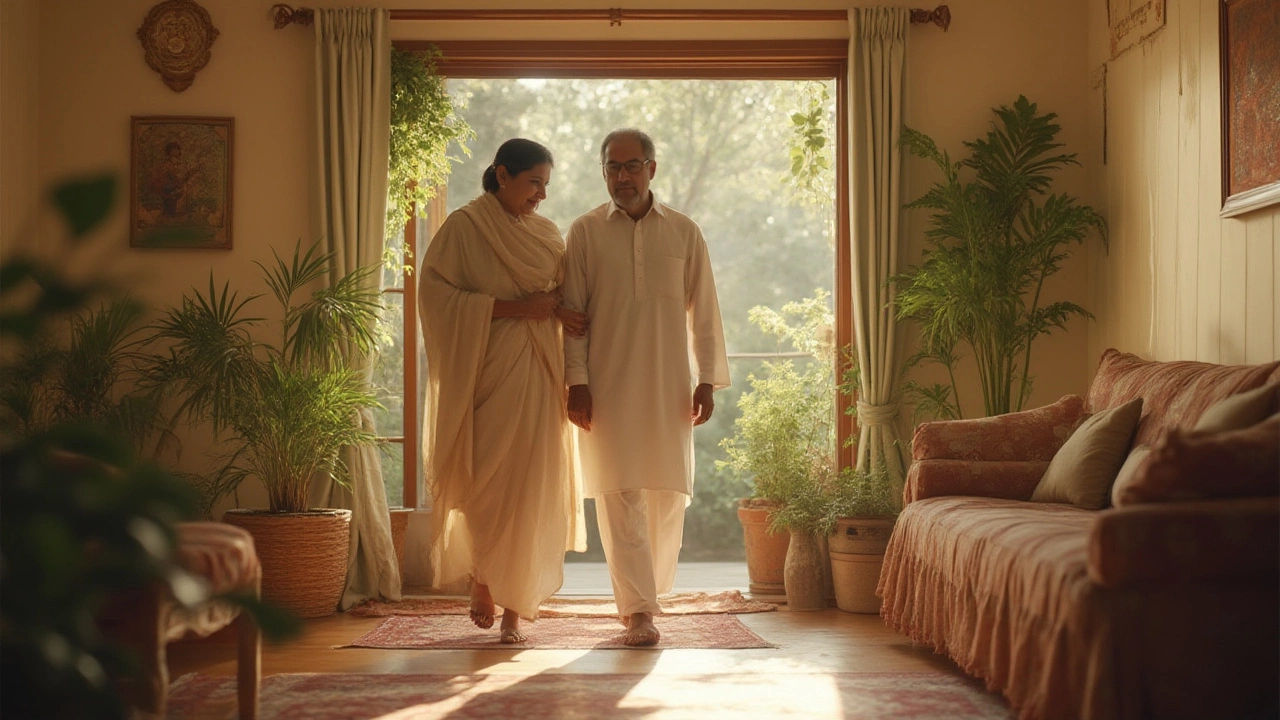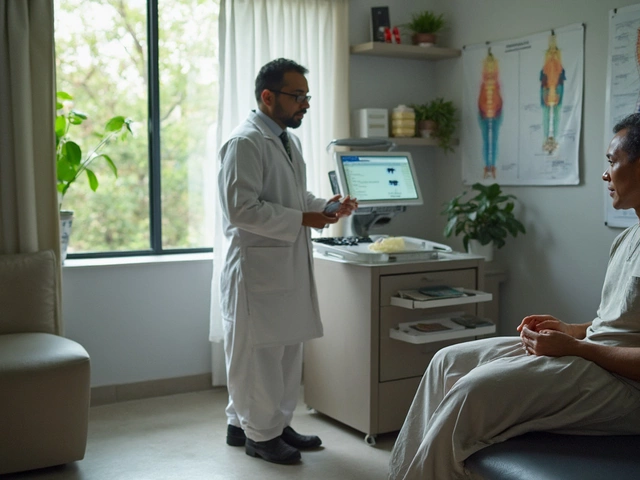Here’s a wild thought: some people run a marathon after surviving an open-heart surgery. Sounds impossible, right? Yet, it actually happens. But for the rest of us—the ordinary folks who aren’t planning to sprint 42 kilometers—what does “recovery” after your chest has been split open and your heart tinkered with really mean? Can you ever feel like your old self? Or does life always carry a mark from the surgeon’s blade? The truth is, the journey is way messier and surprising than most doctors let on.
The Physical Roller Coaster: What Happens to Your Body After Open-Heart Surgery?
After open-heart surgery, nobody snaps back overnight. Your body has to mend not just the heart, but bones, muscles, and—let’s be honest—a deeply freaked-out mind. The most common procedures (like a bypass or valve replacement) start with the sternum being cut open. It takes at least 6 to 8 weeks for those bones to even think about healing. Lifting bags of rice? Hugging grandkids? Forget about it for a while. You’ll be wary of every cough or sneeze. And then there’s the pain—some days it’s dull, other days it’s sharp like a surprise punch. Tubes, scars, and strange aches all appear out of nowhere.
Diet also becomes your new best friend and worst enemy. You might crave biryani, but your doctor’s dream meal for you is a plate of steamed veggies and dal. The food changes, but so does your taste for life itself. If you’re someone used to running up the stairs, get ready to celebrate walking three steps without feeling dizzy. The heart, after all, is a muscle just like your biceps—it needs time to regain its strength. Some specific facts: About 80% of patients say they feel major fatigue for several months, and around 70% complain of “brain fog”—a weird mental haze—especially right after surgery.
Then, the invisible scars. A wound may heal, but sensitivity around the chest can last for years. And about one in five folks get swelled legs or develop fluid buildup, because blood flow isn’t what it used to be. Pro tip? Always keep a small cushion handy for car rides or when you sneeze—that’s chest protection 101 from people who’ve lived through it. Recovery is slow, bumpy, and very personal.
Emotional Ups and Downs: It’s Not Just Physical
We talk so much about scars and prescription drugs, but we don’t talk about the rollercoaster in your head. Open-heart surgery plays havoc with your emotions. Many people face anxiety, mood swings, or even sudden depression. That’s not weakness, that’s just your brain processing a genuine brush with mortality. In fact, research from the Cleveland Clinic reports that nearly half of patients have some symptoms of depression or anxiety within three months of surgery.
Some folks experience odd fears they never had—maybe leaving the house alone, eating new foods, or even watching emotional movies. Nightmares about the hospital are a real thing, too. Let’s not forget about family dynamics. Loved ones become hyper-vigilant, sometimes smothering, and that gets tiring. You can feel grateful and smothered all at once. There can even be a weird guilt for being the cause of so much worry. And privacy can vanish—when was the last time someone offered to help you use the bathroom? Suddenly, everyone becomes a caretaker, which messes with your sense of self.
On the flip side, little things hit different. Watching kids play, chatting with a friend, noticing rain from your balcony—these moments feel richer, more real. Recovery demands not just medical follow-ups, but honest check-ins with your feelings. For some, therapy becomes as crucial as daily meds. Don’t be shocked if you find yourself tearing up at a random ad; that’s just your soul’s way of saying, "Hey, I’m still here."

Practical Life Changes: From the Hospital Room to Home and Beyond
Transitioning home is a whole new game. Hospital beds and machines cradle you, while home is ruthlessly normal. Climbing stairs, bathing, preparing tea—these turn into small challenges. Recovery isn’t just healing, it’s learning new ways to live. Diet is stricter. You’ll probably get a chart from your hospital with what to eat, what to avoid, and what times to take your open-heart surgery recovery pills.
It’s not all doom and gloom, though. Technology helps: some patients wear digital watches tracking heartbeats, and smart scales measure fluid retention. Apps don’t only remind you about medicines, they track your walking sessions. Rehab isn’t just weights and treadmills. In Pune, local hospitals offer “cardiac yoga” using gentle breathing and slow stretches—it’s become a game-changer for many recovering patients.
Housework? You get breaks. Heavy shopping bags are off-limits for months. You’ll measure progress not by heroic feats, but by being able to stand a minute longer or cut your own veggies. Independence returns in small doses. Some guys take up gardening, baking, or even chess for the first time because these keep hands and minds busy while the body takes its sweet time. There will be restrictions: driving, especially in Indian traffic, might take 8 weeks (usually only after your doctor gives the nod). And then there’s sleep: nighttimes can be tricky, with discomfort making tossing and turning the new normal. Invest in extra pillows—they’re lifesavers.
Long-Term Changes: What Stays Different Months and Years Later?
Here’s the straight truth: life does change for good after open-heart surgery. Some things improve—many patients feel more energetic after healing, especially if you struggled with symptoms like breathlessness or tiredness before. But most report a “new normal.” Think of it as life version 2.0. The heart muscle needs constant friendly reminders to behave—daily meds, yearly check-ups, and an eagle eye on cholesterol and blood pressure. You may have to say goodbye to fatty curries or chain-smoking with old friends. Alcohol, caffeine, rich snacks—they’re all under new rules.
Physical activity is both a goal and a tool. It’s not about bench-pressing huge weights, but about regular walks, light cycling, or swimming. Cardiac rehab centers in Pune, for instance, get their patients started on supervised programs before setting them free. It’s about consistency, not intensity. Some complications can pop up late—irregular heartbeat, swelling, or “pumphead” (that weird memory haze) can last longer for a handful of people. Staying alert and keeping regular with tests helps spot problems early. Some folks need a pacemaker after surgery. Others develop new allergies to medicines. Bodies get quirky. Think about travel. You’ll need to plan trips around medicine schedules, alert your insurance, and pack nitroglycerin tablets within reach. Isn’t that wild? Even a simple visit to Mahabaleshwar now has a checklist. But you do adapt. And yes—some even finish that marathon just to prove it can be done. It’s less about return to “old life,” more about making peace with a different rhythm. And that’s okay.

Tips for Real Recovery: How to Handle the Journey
Want the best tips from people who’ve really done the hard work? First, patience isn’t just a virtue—it’s your best friend. Don’t race the calendar. Take naps if you want. Rest is your body’s building block now. Second, trust your team. Patients at Ruby Hall Clinic say that the most helpful thing was showing up for every follow-up, no matter how boring it seemed. Your doctors and nurses are like your pit crew—if anything feels odd, talk to them. Third, keep moving, but listen to your body. Some days, a walk around the block is a win.
- Ask for help when you need it—this isn’t the time to play hero.
- Stay on top of your medicines and alarms. Use a pillbox or app to avoid missing doses.
- Get support, whether it’s joining a local group or connecting online. Swap stories. Learn from others’ mistakes.
- Watch for odd symptoms: fever, new pains, weird swelling, or stubborn sadness. Don’t ignore them.
- Keep a journal. Tracking moods, foods, activities—even if it feels silly—helps spot patterns and progress.
- Don’t expect instant magic in bed, at work, or even at dinner. Give your body permission to lag behind your mind’s ambitions.
And finally, be kind to yourself. Love that scar—some even get tattoos over theirs, like badges of honor. The real answer to “Do you ever fully recover from open-heart surgery?” is personal. Some days, you’ll feel stronger than ever. Other days, something will ache, or you’ll panic remembering that hospital smell. But you will adapt. You will change. And even if “fully recovered” looks a bit different than you imagined, it will still be yours—and honestly, that’s pretty powerful.





